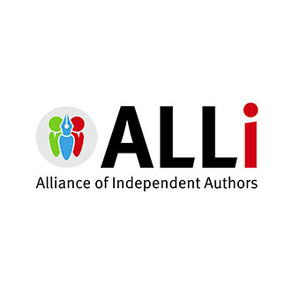Melissa Addey, ALLi Campaigns Manager
Should authors “write to market”? It’s a question we’ve answered before, but this month, we’re looking at a more practical question: if you want to understand what’s going on in the market in which you are doing business, how do you go about it? Where can you find the best facts and figures to help your writing and publishing choices? Many authors seem afraid of “data,” yet there is no industry that does not use information to help it make good commercial choices.
The Alliance of Independent Authors (ALLi) commissions original research and compiles facts and figures across the industry, making it one of the best sources of data on self-publishing in the world. You can find multiple readable reports at https://allianceindependentauthors.org/facts, offering insights relevant to indie authors on publishing business trends, such as selling direct, using AI tools for marketing, distribution trends, and craft-related decisions about things like writing diverse characters or writing stand-alones versus series.
Beyond these initial facts and figures, though, let’s look at where to find more specific information relevant to every stage of your writing and publishing business.
Beginner Authors: Invest Your Time
Market research can be 100 percent free; what it does take is a bit of your time. Go on Amazon, Kobo, Barnes & Noble, and other retail platforms, and look at your own genre and categories to see what it takes to make stories like yours sell. What do the other books look like? What kinds of cover trends can you spot? Sometimes the font, colors, and suitable visuals are obvious and a real boon for briefing cover designers. How are the blurbs worded? Are there certain buzzwords and tones of voice used?
Look at the editorial reviews and any awards won by other authors; both can indicate reviewers and awards that would be suitable for you to approach. Pay attention to where a distribution site suggests other authors who readers often enjoy, and look at those authors’ platforms to understand what you might have in common and how they market themselves.
Check each site’s ranked titles as well. Which books are in the Top 100 in the overall store, and which books are still selling well many years after publication?
Then look at the reader reviews. What are readers saying? What aspects of the books are they valuing? What words and phrases do they use that you’d like them to use about your books?
All of this can guide you on your choice of genres or subgenres, covers, and blurbs, and help you decide which reviewers and awards to include in your marketing plans. Read widely in your category too; even just reading online samples will indicate common stylistic options that you can consider when making your own craft choices.
ALLi’s “Ultimate Guide to Understanding Your Book Genre for Indie Authors,” about getting into the nitty-gritty of your genre, has excellent tips for conducting this kind of research and can be found at https://selfpublishingadvice.org/understanding-your-genre.
Emerging Authors: Invest in Tools
When it comes to the publishing market, you may not always need to do all the digging yourself. There are valuable market research tools in which authors can invest where someone else has done the legwork for you. Two in particular that are of use and relatively affordable are K-Lytics and Publisher Rocket by Kindlepreneur. K-Lytics offers genre-specific reports—almost forty at last count—that analyze thousands of Amazon books and sales trends to offer information on everything from cover color trends to which subgenre niches are growing or fading away. Check the K-Lytics website at https://k-lytics.com/shop to see if your category is covered.
Publisher Rocket gives authors information on the most searched-for keywords to use in your metadata and category insights such as what percentage of the category comprises traditional or indie authors, the average page count, whether the whole category is growing or declining over time, and more. Learn more about the platform at https://publisherrocket.com. If you’re feeling busy, allow these tools to do the heavy lifting for you and enjoy their insights at the click of a button.
Experienced Authors: Invest in Your Own Data
As well as external market data, as you grow in experience and time spent as an author, the most important consideration is your own data, which will build up on retail and distribution platforms and via analytics on your own website and any ads platforms you use. Which calls-to-action (CTAs) work best inside your books? Which pages do your website visitors linger on, and which do they bounce away from most quickly? Did your sales go up when you changed your covers?
Take your best reviews and make a word cloud of them to understand what your readers value most in your writing. When you have a wide back catalog, try advertising your overall author brand rather than individual titles or series. To help with this, add up how many five-star reviews you’ve received across all your books, as a few thousand can be a strong piece of social proof.
Being able to see more of your own data is, of course, something that interests many indie authors about selling books from their own website. It isn’t just about the higher profit margins you’ll receive but also about the chance to keep and analyze all customer data, leading to greater engagement and better communication with your most loyal readers. ALLi has multiple posts on how direct sales can benefit your business, from e-books to print, and the mindset shift it takes.
- https://selfpublishingadvice.org/selling-books-on-your-author-website
- https://selfpublishingadvice.org/print-books-direct
- https://selfpublishingadvice.org/podcast-direct-sales
If you’re considering something like a Kickstarter project, browse several projects in the publishing category and back some projects yourself to see how it all feels. Note what kinds of rewards are being offered, the tone and frequency of communications, the visuals used, and more; all of it will give you important insights into how to set up a successful Kickstarter of your own. Once the campaign is over, always review what went well and what you could do better next time—in writing.
Remember, even if you have a passion project burning in your heart, that doesn’t mean you can’t also do your research and ensure your marketing plans are built into the book. A December 2023 episode from ALLi’s Publishing for Profit podcast, “Bake Marketing Into Your Writing Process,” explores doing just that.
Finally, a reminder that market research opportunities are everywhere. Don’t just look at the publishing industry; also look beyond it to understand the bigger picture. For example, Mintel’s annual Global Trends recently identified that consumers want more “experiences” and fewer “things.” How might you market your books as an experience rather than a product?
Market research can be a fun activity leading to significant commercial and creative rewards. Enjoy!
Melissa Addey, ALLi Campaigns Manager


